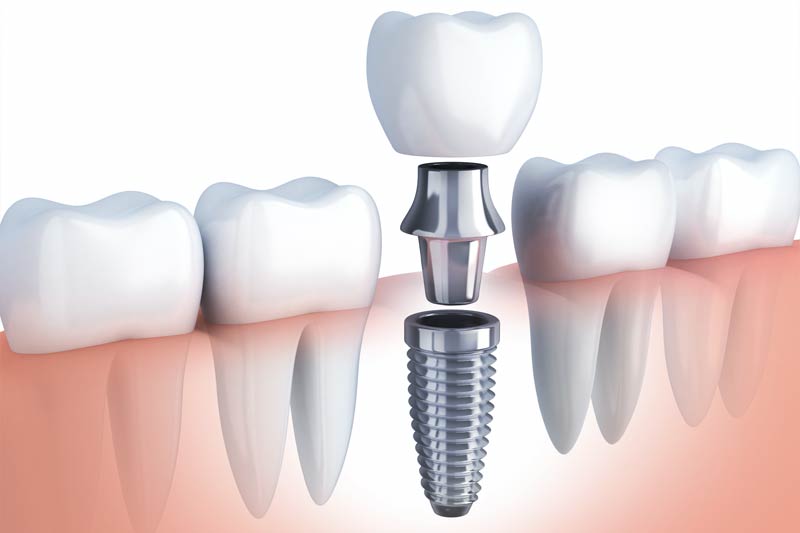
Commonly Asked Question – Dental Implants, Brandywine MD
Dental implants are a popular, effective and long-lasting solution for replacing missing teeth. The technique of inserting titanium posts into your jaw is the surgical procedure that forms artificial “tooth roots” which act as sturdy supports for replacement tooth, dentures or bridges.
They offer many other advantages over other tooth replacement options as follows:
- Can be used to replace one or more teeth without affecting the health or structure of neighboring teeth like conventional bridgework
- They’re natural-looking and feeling, so you can enjoy your usual foods and care for your mouth as usual without necessarily giving the new tooth any special attention
- Can be used to support a denture, making it more secure and comfortable
- Can be used to support a bridge to replace more than one tooth, as an alternative to removable partial dentures
- They stimulate the jawbone to prevent bone resorption, which can make your face appear older
Placing dental implants involves a surgical procedure that requires extreme care. The implant requires three to four months to integrate with the underlying bone tissue before crown placement. During this time, the dentist will place dentures or partials to cover the gap and allow you to eat normally. Complex cases that involve soft and hard tissue grafting will take nearly twice as long. But the actual time depends on your age, health, number of teeth, and quantity and quality of bone tissue.
The Treatment Process
The oral surgeon uses state-of-the-art 3D digital imaging and advanced implant planning software to analyze your jaw anatomy and identify the best site for the implant before surgery. This is important to reduce the recovery time to a few months. After surgical placement of the implant, you need to wait 4-6 months for the gums to heal before the replacement tooth can be placed. If your gum and/or bone tissue needs to be rebuilt, like through grafting, then the full treatment time will be longer.
Please schedule an appointment with your oral surgeon for a proper assessment of your case.



